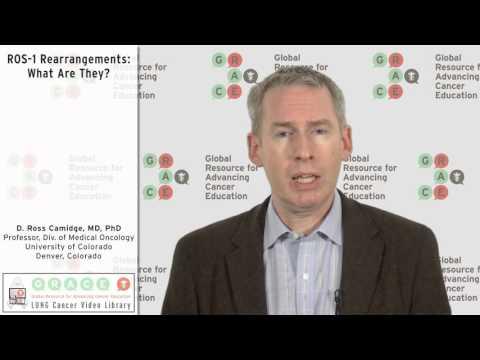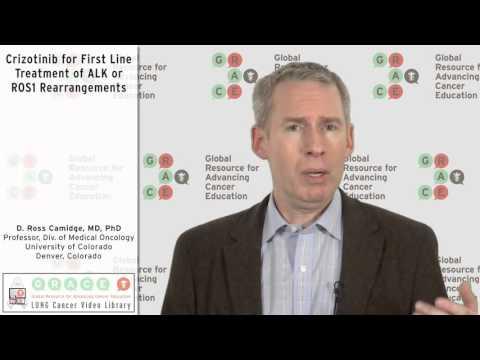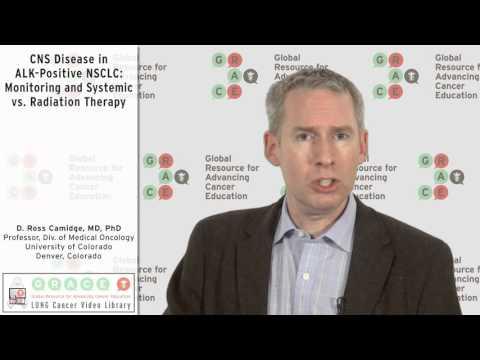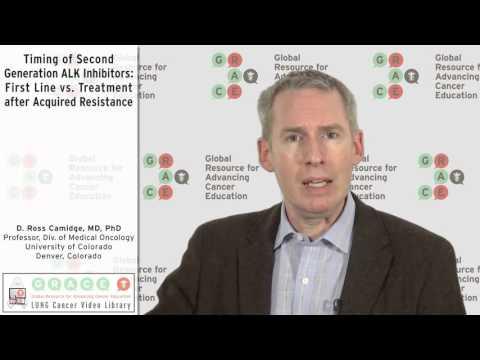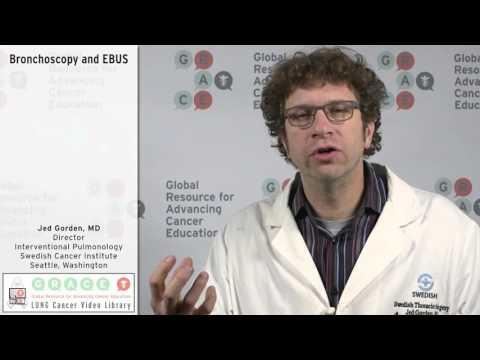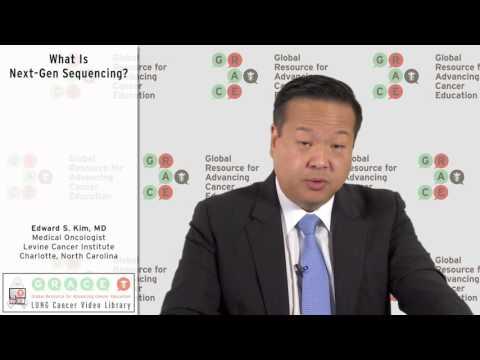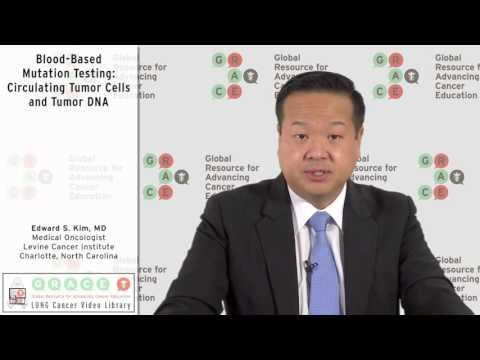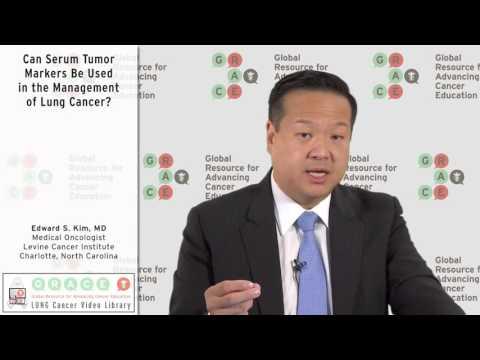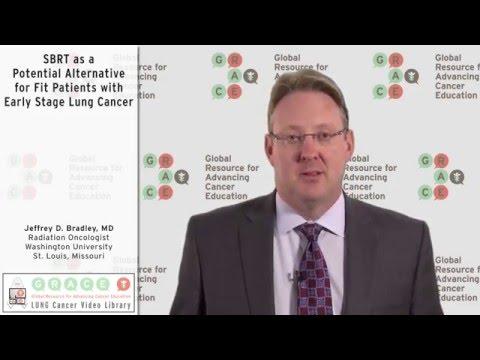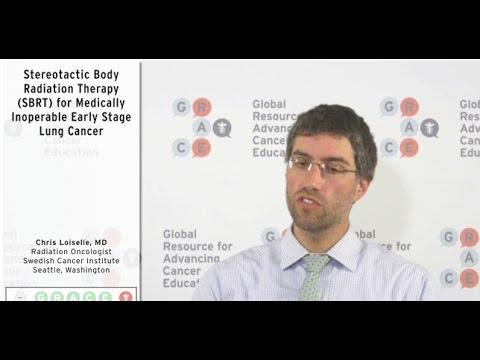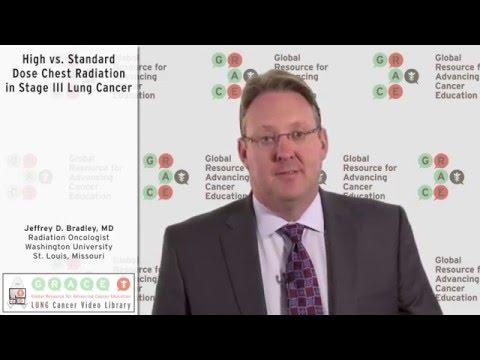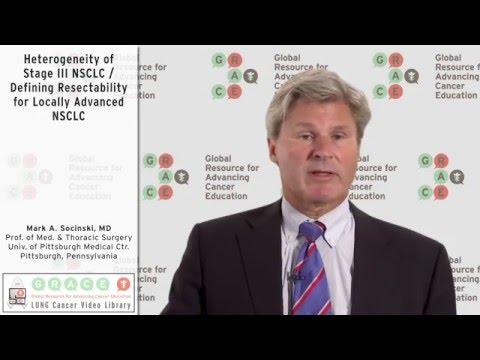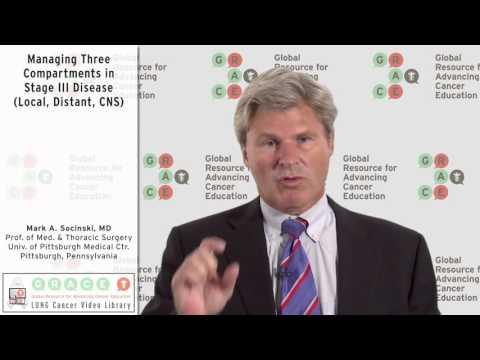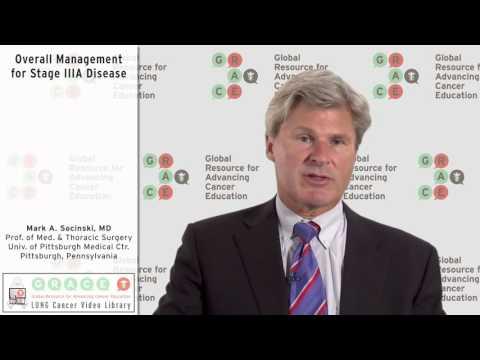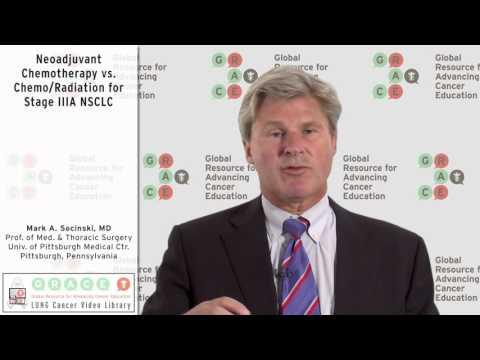Dr. Ross Camidge, University of Colorado, describes ROS-1 rearrangements and compares them to ALK rearrangements in frequency of occurrence and response to treatment.
Video Library
Search the Video Library
Video Language
Filter by Cancer Type:
Displaying Results 16 - 30 of 130
Dr. Ross Camidge, University of Colorado, explains the preference for crizotinib rather than platinum doublet chemotherapy as first line treatment for patients with ALK or ROS1 rearrangements.
Dr. Ross Camidge, University of Colorado, discusses management of CNS progression for ALK-positive NSCLC including monitoring frequency and preferences between systemic and radiation therapy.
Dr. Ross Camidge, University of Colorado, addresses the question of whether to use a second generation ALK inhibitor as first line therapy or only after acquired resistance to crizotinib.
Dr. Jed Gorden, Swedish Cancer Institute, describes the differences between bronchoscopy and endobronchial ultrasound, highlighting the advantages of EBUS in diagnosis and staging.
Dr. Ed Kim from the Levine Cancer Institute in Charlotte, NC summarizes the mechanism of next generation sequencing (NGS), how it can potentially be used, and its limitations in clinical practice today.
Dr. Ed Kim from the Levine Cancer Institute reviews the potential advantages and current limitations of blood-based testing for molecular markers using circulating tumor cells and circulating tumor DNA in identifying clinically important mutations.
Dr. Edward S. Kim from the Levine Cancer Institute in Charlotte, NC describes the use of serum tumor markers in various types of cancer, and the lack of a useful serum tumor marker in lung cancer.
Dr. Jeffrey Bradley, Radiation Oncologist at Washington University in St. Louis, provides evidence for the use of stereotactic body radiation therapy as an alternative to surgery for operable early stage lung cancer.
Dr. Jeffrey Bradley, Radiation Oncologist at Washington University in St. Louis, describes the history and current use of stereotactic radiation therapy for inoperable lung lesions.Dr. Jeffrey Bradley, Radiation Oncologist at Washington University in St. Louis, describes the history and current use
Dr. Jeffrey Bradley, Radiation Oncologist at Washington University in St. Louis, provides trial evidence showing that patients may not benefit from high dose chest radiation therapy vs. standard dose therapy.
Dr. Mark Socinski, University of Pittsburgh Medical Center, describes the different types of stage III (locally advanced) NSCLC, and states which of these types tend to be resectable.
Dr. Mark Socinski, University of Pittsburgh Medical Center, defines the three compartments in stage III (locally advanced) NSCLC, each of which must be treated.
Dr. Mark Socinski, University of Pittsburgh Medical Center, describes the primary treatment options for stage IIIA NSCLC, including chemoradiation and surgery, and discusses trial evidence for each approach.
Dr. Mark Socinski, University of Pittsburgh Medical Center, compares the use of chemotherapy to chemo/radiation in the preoperative setting in stage IIIA lung cancer.

